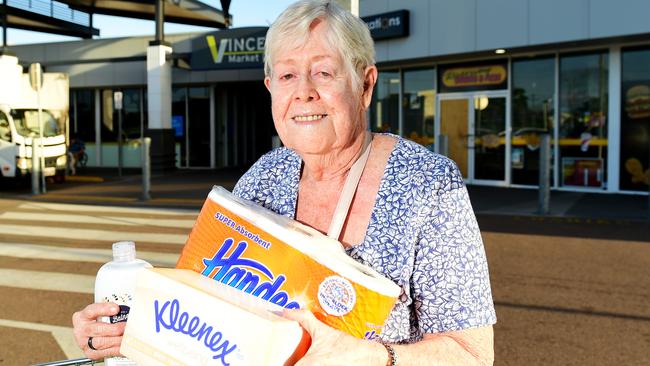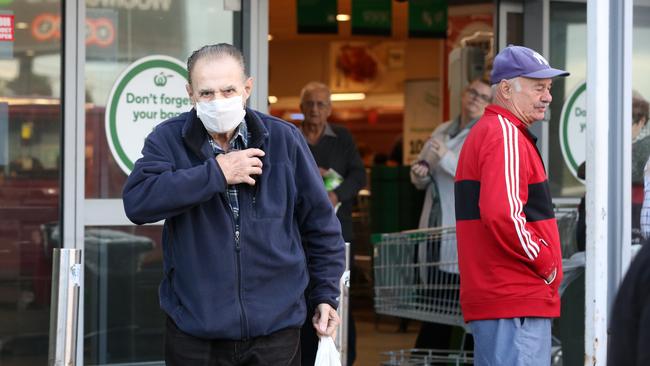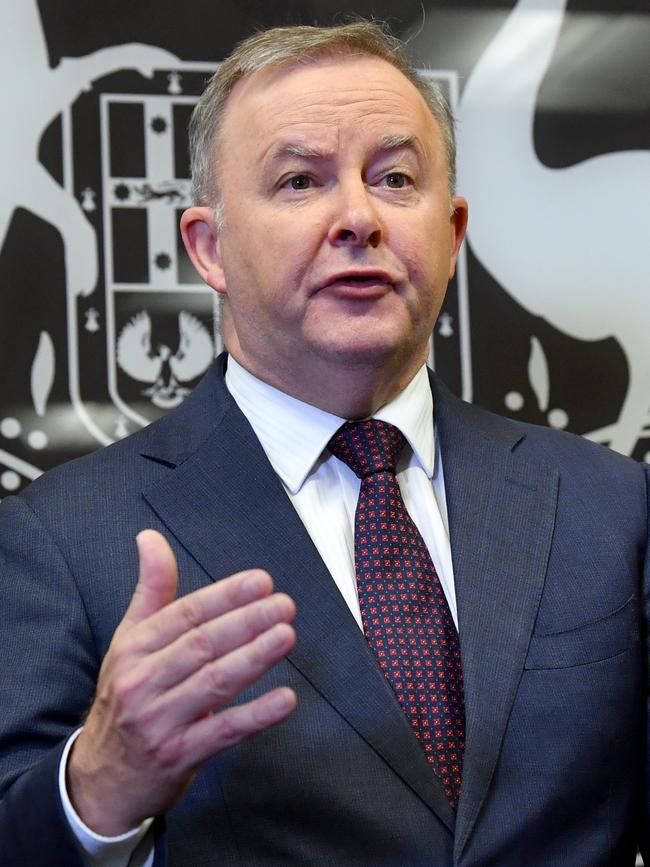Rita Panahi: How political players are trying to harness the coronavirus crisis
From the start of the coronavirus crisis we’ve seen political pundits and players injecting race into an issue that has nothing to do with race and trying to use a global medical crisis to damage their domestic ideological foes, writes Rita Panahi.

Rita Panahi
Don't miss out on the headlines from Rita Panahi. Followed categories will be added to My News.
Times of crisis bring out the best and worst in mankind. Recently we’ve seen people brawling over toilet paper and supermarket shelves stripped of essential items. Some, including the elderly and infirm, are going without while others selfishly stockpile.
But we’ve also seen wonderful generosity and willingness to help those struggling to cope. And though much of the media focus has been on panic and hysteria, there is also a surprising, some might say disturbing, level of normalcy in the community.
Many cafes, bars and shopping precincts continue to do a roaring trade with customers sitting shoulder to shoulder. On the weekend I was surprised to see Qantas Club buffet lines well patronised by passengers in both Sydney and Melbourne. You take your chances at a buffet at the best of times but in this age of social distancing people were still comfortable to line up and use shared tongs.

We are living through an extraordinary period with daily changes to what is considered best practice. There is so much we don’t know about this virus. Even the number of infections and mortality rate are educated estimates at this stage, given authorities are not clear on how many people have coronavirus but are unaware due to being minimally symptomatic or asymptomatic.
Anthony Fauci, director of the National Institute of Allergy and Infectious Diseases in the US, has said the fatality rate of coronavirus was likely to be about 1 per cent, which is still roughly 10 times deadlier than the flu. Yet in Italy about 7 per cent of those who tested positive died, but that may be due to the health system being unable to deal with an influx of seriously ill patients, meaning some elderly sufferers could have gone without proper treatment.

The average age of the dead has been 81 in Italy, according to data released by the country’s health department earlier this month. A hospital administrator, Lorenzo Casani, explained what happens when there are more patients than hospital beds and necessary equipment: “If you have to choose between a 75-year-old person and a 20-year-old person, who are you going to choose? Obviously, it’s the person with the higher expectation of life.”
In South Korea the fatality rate for coronavirus is less than 1 per cent.
Trust the experts, we are told, but even the very best minds are divided about what is the optimum approach. One only needs to look at the Netherlands’ “herd immunity” strategy to see some experts are not on board with the measures adopted in Australia, the US and much of the world.
Dutch Prime Minister Mark Rutte said “experts” had advised that the best approach was to “build up group immunity” by allowing people to become infected.
“Those who have had the virus are usually immune afterwards … the larger the group that is immune, the less chance that the virus will jump to vulnerable elderly people and people with poor health,” he said. It’s an approach that has alarmed many experts who believe it’s reckless and will lead to a greater number of deaths. But the UK government’s chief scientific adviser, Patrick Vallance, is backs herd immunity, telling the BBC Brits must “build up some kind of herd immunity so more people are immune to this disease and we reduce the transmission”.

Locally we’ve seen differing advice from authorities with Victorian Chief Health Officer Brett Sutton recommending people stockpile a two-week supply of food while Australian Chief Medical Officer Brendan Murphy said “panic buying is just stupid” and encouraged people to buy only what they needed.
Australia, the US and Singapore were among the first nations to take decisive action in imposing travel bans from China in January. Medical experts say that was critical in slowing the spread of the virus. But compare that to Canada, where Justin Trudeau’s government refused to ban flights from China until yesterday. Indeed Canada was accepting passengers arriving from coronavirus hot spots China, Iran and Italy until they imposed tough travel bans on Tuesday.
From the start of this crisis we’ve seen political pundits and players injecting race into an issue that has nothing to with race and trying to use a global medical crisis to damage their domestic ideological foes. This is no time for cynical political games. Federal Labor is trying to reprise their “blame Morrison” strategy that worked so well during this summer’s bushfires but they’d be better working in the national interest instead of scoring cheap political points.
The newly-formed national cabinet contains a number of Labor leaders, including Daniel Andrews. We need a united approach, not federal Labor MPs and bitter former prime ministers spouting divisive nonsense. Suggestions that opposition leader Anthony Albanese should be invited into the national cabinet are obtuse. We had an election, a government was formed and we must allow them to govern.
The coronavirus crisis will, in the short term, change life as we know it although for most of us the disease is not life threatening.
But coronavirus is a terrifying prospect for the ill, elderly and frail. We all carry a responsibility to do what we can to protect them during this traumatic period in time.
— Rita Panahi is a Herald Sun columnist.
@ritapanahi

